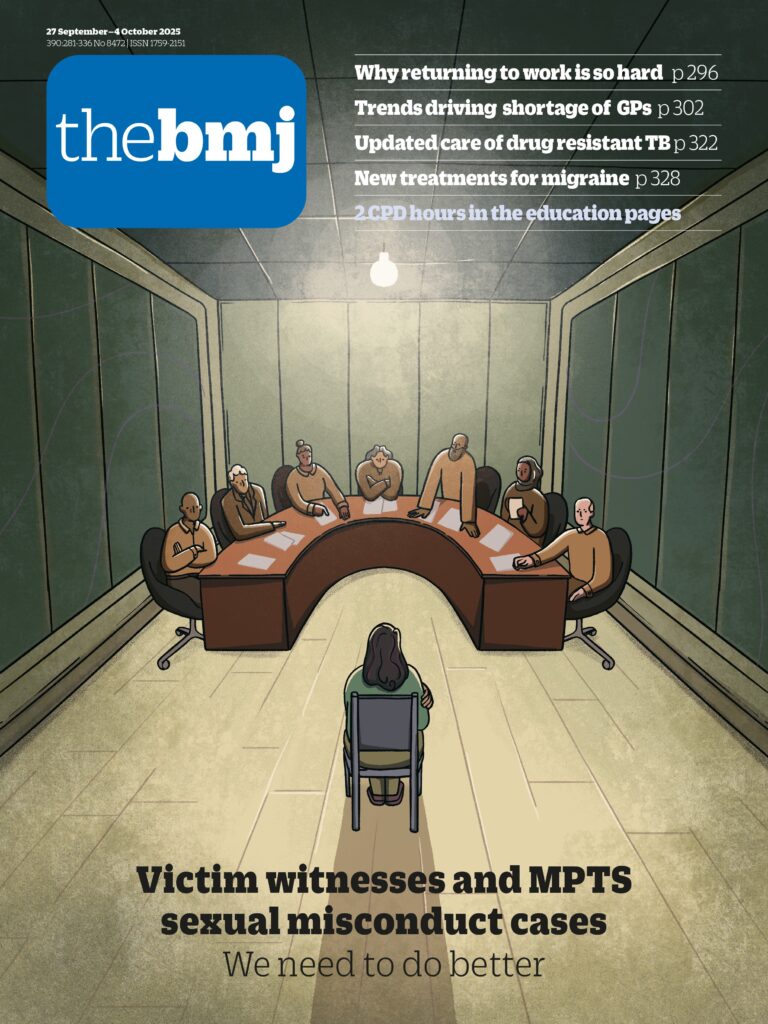- Judith R Harrison
- Newcastle upon Tyne
- judith.harrison{at}newcastle.ac.uk
Credit: Wellcome Collection
David Enoch was a doctor who made ministers flinch. “I was a troublemaker,” he recalled decades later, “But it was the only way to get changes made.” It was in 1965, when he took a consultant psychiatry post at Shelton Hospital in Shrewsbury, that he was first exposed to the geriatric wards hidden from public view. Here he introduced regular teaching and therapeutic communities—a democratic, participative group approach—and piloted one of Britain’s first care in the community schemes. He identified a core of progressive psychiatrists in other parts of the country, and they exchanged ideas.
Enoch used polite and persistent letters to engage in discourse with politicians across the spectrum in his campaigns for mental healthcare reform. Later, frustrated with a lack of progress, he joined Barbara Robb’s pressure group, Aid for the Elderly in Government Institutions, and contributed to her book Sans Everything: A Case to Answer.1
Robb’s revelations of the appalling conditions in some psychiatric and geriatric hospitals—overcrowding, rough handling, and misuse of tranquillisers—sparked outrage. Although politicians initially dismissed the allegations, the book prompted a public …

